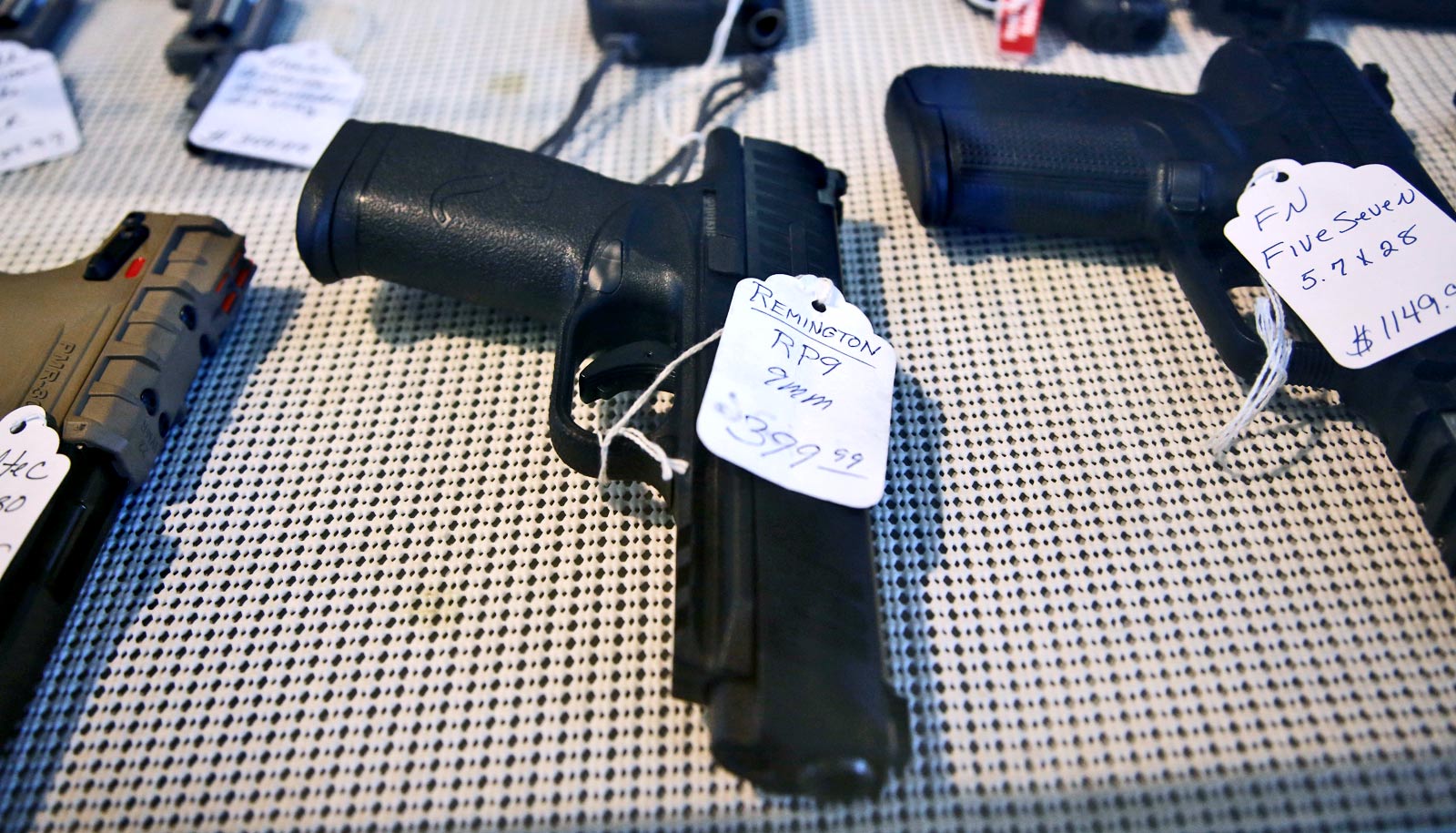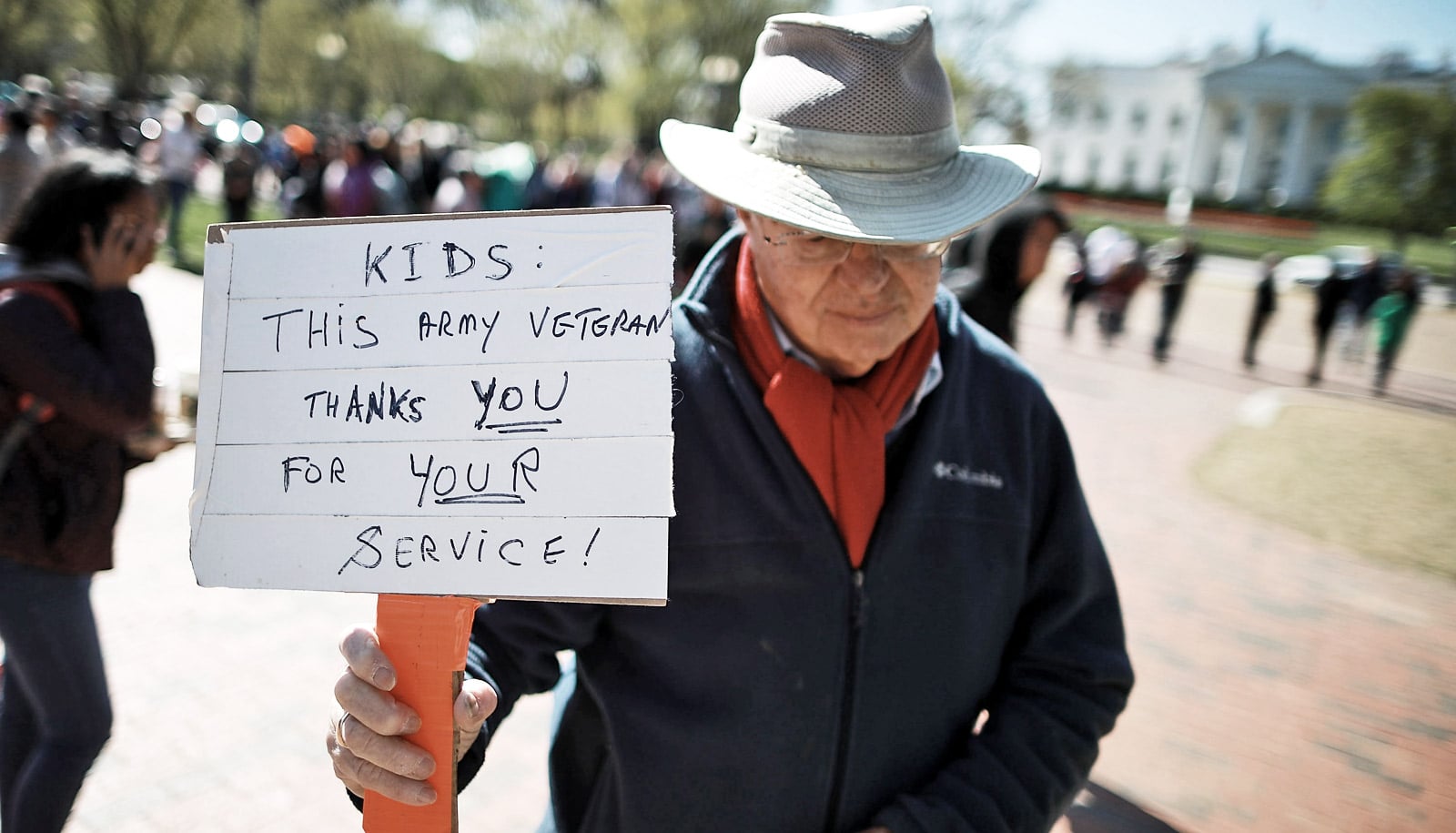State laws restricting who has access to guns significantly reduce rates of gun-related deaths, according to a new study.
Gun control advocates and policymakers in the United States have long advocated universal background checks. Despite a push for federal gun regulations in recent years, the power to legislate gun sales and gun ownership is largely beholden to the states.
Now, new evidence shows just how much impact background-check laws can have.
Researchers at the Boston University School of Public Health analyzed 25 years of data from across the United States and discovered a link between state laws restricting who can access guns—not what types of guns people have—and significantly lower rates of gun-related deaths.
Their findings, which suggest that who owns guns matters more than which guns people own, appear in the Journal of General Internal Medicine.
The average firearm homicide rate in states without background checks is 58% higher than the average in states with background-check laws in place.
For the study, Michael Siegel, professor of community health sciences, and colleagues examined the relationship between 10 different types of state laws and the number of deaths by homicide and suicide in all 50 states.
The findings show that state gun laws requiring universal background checks for all gun sales resulted in homicide rates 15 percent lower than states without such laws. Further, laws that prohibit people convicted of a violent crime from possessing firearms linked to an 18 percent reduction in homicide rates.
In contrast, regulating the type of firearms people have access to—such as assault weapon bans and large capacity ammunition magazine bans—and “stand your ground” laws have no effect on the rate of firearm-related homicide. None of the state gun laws studied related to overall suicide rates.
The average firearm homicide rate in states without background checks is 58 percent higher than the average in states with background-check laws in place. As of 2017, only 13 states, including Massachusetts, had laws requiring universal background checks, Siegel says.
Here, Siegel explains the details of the study and his take on the findings:
What’s different about the design of this study?
There are numerous studies that have examined the effect of particular state firearm laws, but there are few studies, until now, that have investigated the impact of multiple state firearm laws at the same time, using the same statistical model.
Our goal was to assess the impact of multiple state laws using a single statistical model, while controlling for the presence of each of the other laws.
It’s important to recognize that states that have one law in place are more likely to have other laws in place as well. One must examine the impact of each law while controlling for the presence of other laws.
Which part of your findings are particularly striking to you?
Tight regulation of who has access to firearms, rather than the type of firearms that are allowed, differentiates states with the lowest rates of homicides.
What surprised us the most was that in states that enacted a combination of universal background-check laws, laws prohibiting the sale of guns to people with violent misdemeanors, and concealed carry permit laws, the homicide rates were 35 percent lower than in states with none of those three kinds of laws.
The practice of keeping guns out of the hands of people who are at the greatest risk for violence—based on a history of violence—appears to be the most closely associated with decreased rates of firearm homicide.
Why do you think laws regulating the “who” have a substantial impact on firearm homicide, as opposed to laws regulating the “what”?
Laws regulating the sale of assault weapons are unlikely to have a large impact on homicide rates, because these weapons are used in only a very small proportion of homicides. The vast majority of firearm homicides in the United States are committed with handguns.
In contrast, laws that restrict access to firearms among those people who are at the greatest risk for violence—namely, people with a history of violence—are intervening among a subpopulation of people who are likely to commit crimes.
In other words, you are intervening in the most focused way possible—that is, in high-risk situations. That appears to give you the greatest bang for your buck, so to speak.
Can you explain the relationship between the two types of laws found to reduce homicide rates: universal background checks and laws prohibiting possession of firearms by people with past records of violence?
In a sense, universal background checks are the basic platform upon which you can effectively implement restrictions on who has access to a gun.
States need to have two types of laws to be effective: first, restrictions on who can access a gun; and second, universal background checks so that you know whether a prospective buyer is subject to those restrictions.
What’s your take on advocates pushing for both universal background checks and bans on assault weapons?
Although I completely understand the desire to ban assault weapons, I just don’t see empirical evidence that such bans have any substantial impact on homicide rates. These bans are most often based on characteristics of guns that are not directly tied to their lethality.
In contrast, requiring universal background checks in all 50 states could have a substantial impact on gun violence because it would essentially set a minimum standard across the nation—that standard being very simply that people purchasing a gun need to be checked to see if they have a history that puts them at high risk for violence.
Public health advocates need to set priorities in terms of what policies are the most critical to enact. In fact, the primary purpose of our policy brief was to review the existing research and provide data on multiple laws in order to inform public health advocates and policymakers on this issue.
After the recent tragedy in Christchurch, New Zealand, their prime minister announced a national ban on all semiautomatic weapons, high-capacity magazines, and parts that allow weapons to be modified; how do you think this will impact the country?
These policy reforms will likely reduce casualties from mass shootings. One needs to remember, however, that the gun stock in New Zealand is much lower than it is in the US. About 99.9 percent of all [gun-related deaths] in the United States are either suicides, unintentional shootings, or non–mass shooting homicides—none of which will be eliminated by getting rid of assault weapons.
How, in your opinion, can lawmakers effectively reduce gun violence in their home states?
I believe that the three most important things that lawmakers can do to reduce gun violence in their home states are to pass laws that: one, require universal background checks; two, prohibit gun purchase or possession by anyone with a history of violence, whether it be a felony or a misdemeanor; and three, provide a mechanism, called red flag laws, to address people who are at an extreme risk of committing violence, not only to other people but to themselves.
Source: Jessica Colarossi for Boston University



